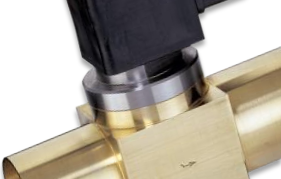Terms and Conditions
Our Terms of Sale and Payment to which the customer declared his agreement at the time of placement of the order shall apply exclusively, including to future business transactions where they have not been referred to specifically but where they have been sent to the ordering party in the event of a previous order confirmed by us. Even where the order is placed in deviation from our Terms of Delivery and Payment, our Terms of Delivery and Payment shall apply, even when we do not state our disagreement. Deviations shall therefore be valid only when they have been expressly accepted by us in writing.
All payments with debt-discharging effect are to be made exclusively to VR FACTOREM GmbH, Hauptstraße 131-137, 65760 Eschborn, to whom we have transferred out current and future claims arising from our business relationship. We have also transferred our reserved property to VR FACTOREM GmbH.
We are entitled to transfer the claims from our business relationships.
The contractual relationship is subject exclusively to German law, in particular the Bürgerliche Gesetzbuch (German Civil Code) and the Handelsgesetzbuch (German Commercial Code). The provision of the UN-CISG shall not apply.
The court of jurisdiction shall be where the company has its official address or Frankfurt am Main, as we choose.
Should the purchaser be in arrears with any payment obligations to us, all existing claims shall become immediately due.
A set-off by the purchaser against counterclaims is excluded, unless the counterclaims are undisputed or have been established as final and absolute. The assertion of a right of retention by the purchaser is excluded, unless it is based on the same contractual relationship or the counterclaims are undisputed or have been established as final and absolute.
Reservation of property rights:
-
Until such time as all current or future claims (including all current account balance claims) due to the vendor from the purchaser arising from any legal grounds have been settled, the merchandise remains the property of the vendor. Processing or alteration shall always be carried out for the vendor as manufacturer, however without constituting a liability for him. Where the property rights of the vendor expire through assembly, it shall be already agreed that the purchaser’s property rights to the jointly-owned property shall be transferred on a pro-rata basis to the vendor. The purchaser shall store the property of the vendor without charge. Merchandise to which the vendor has property rights shall be referred to hereinafter as reserved property.
-
The purchaser shall be entitled to process and sell the reserved property in the due course of business provided he is not in arrears. Pledging as security or transfer by way of security are not permitted. The claims arising from the selling-on of the reserved property or from any other legal reason shall be transferred in their entirety at this stage as a precaution by the purchaser to the vendor. The vendor issues him with revocable authorisation to collect the claims transferred to the vendor on his account in his own name. This collection authorisation can only be revoked when the purchaser has failed to duly comply with his payment commitments.
-
In the event that third parties take hold of the reserved goods, in particular in the event of seizure, the purchaser shall point out the vendor’s ownership of the goods and notify same without delay so that the vendor can assert his property rights. Should the third party be unable to reimburse the vendor for the court or out-of-court costs arising in this context, the purchaser shall be liable.
-
In the case of conduct in contravention of the contract on the part of the purchaser, in particular arrears in payment, the vendor shall be entitled to withdraw from the contract and demand handover of the reserved property.
-
For the assertion of the rights arising from the reserved property, no withdrawal from the contract is necessary, unless the debitor is a consumer.
The following shall apply for the delivery of goods:
Until such time as all our accounts receivable from the customer have been settled in full, the goods delivered shall remain our property. The customer is entitled to sell these on in the normal course of business, provided he is not in default of payment. However, the customer may not pledge the goods subject of reservation of title, or assign them as collateral. Even now, the customer assigns to us as a precautionary measure his accounts receivable vis-a-vis his customers arising from the selling on of the reserved goods, as well as any claims of the customer regarding the reserved goods which arise from other legal grounds (including vis-a-vis third parties). Any processing or alteration of the reserved goods by the customer shall always ensue on our behalf. If the reserved goods are processed along with other items which do not belong to us, we shall acquire co-ownership of the new item in the ratio in which the value of the reserved goods (invoice sum incl. VAT) relates to other combined or amalgamated items at the time of combination or amalgamation. If the customer’s item is to be regarded as the primary item, the customer shall assign pro rata co-ownership of the item to us. We accept this assignment. The ownership or co-ownership of the item shall be held for us by the customer.

